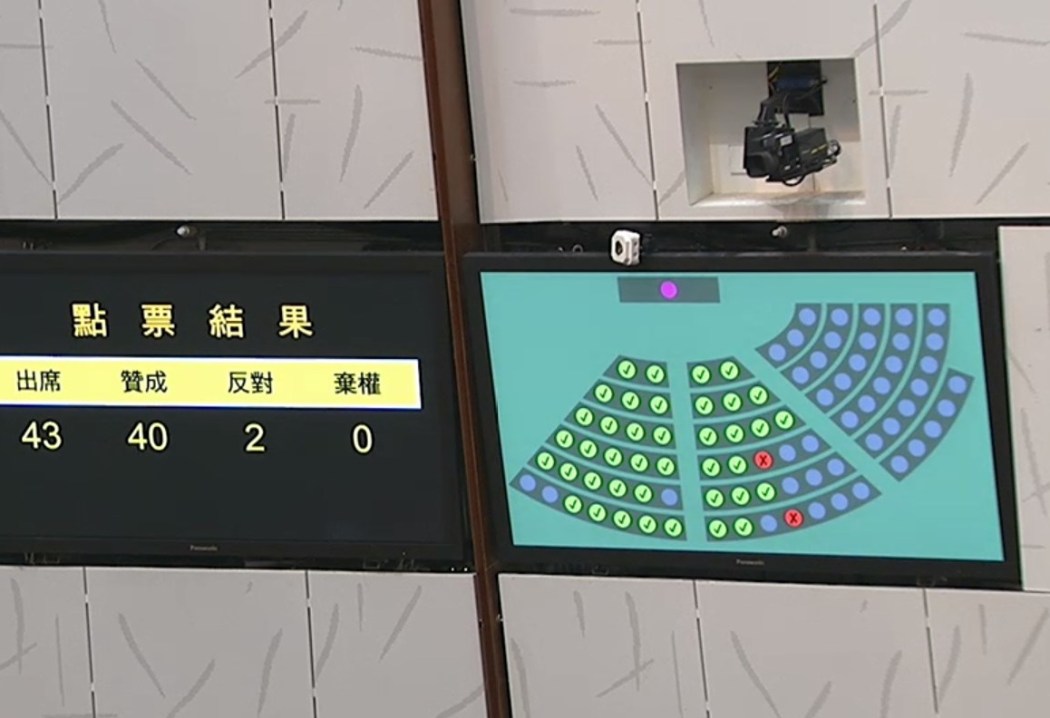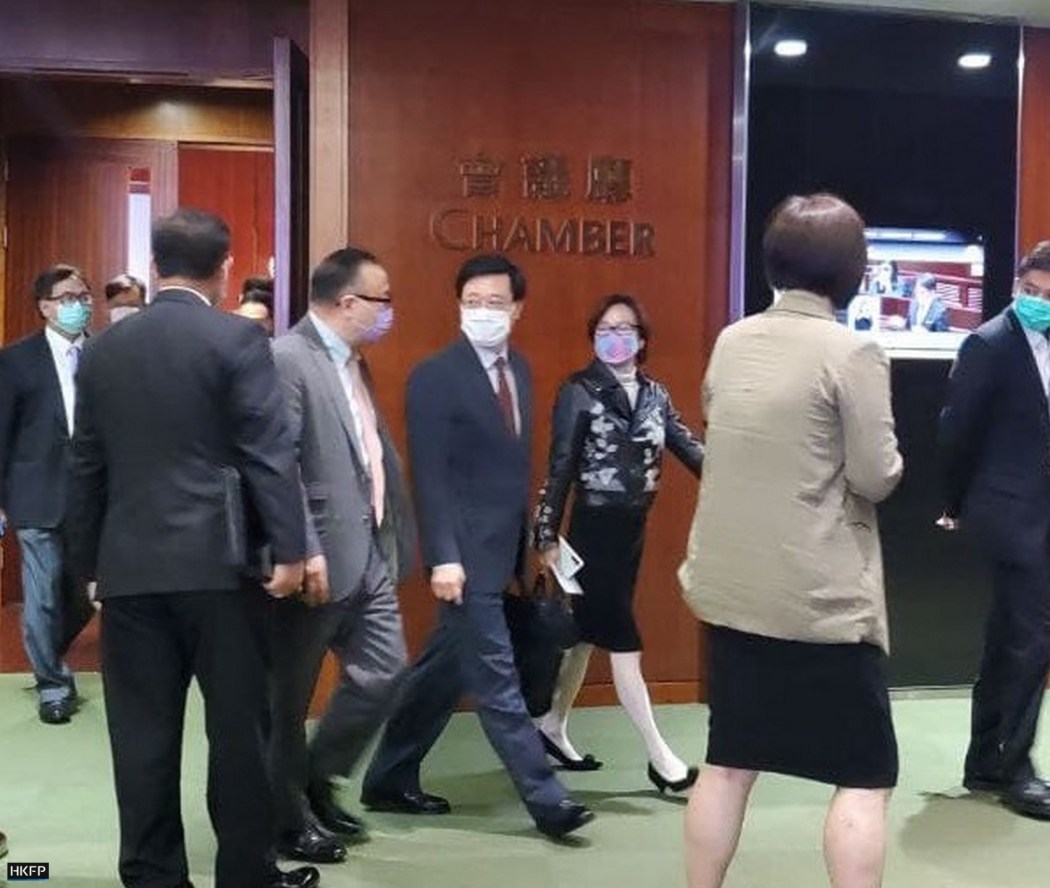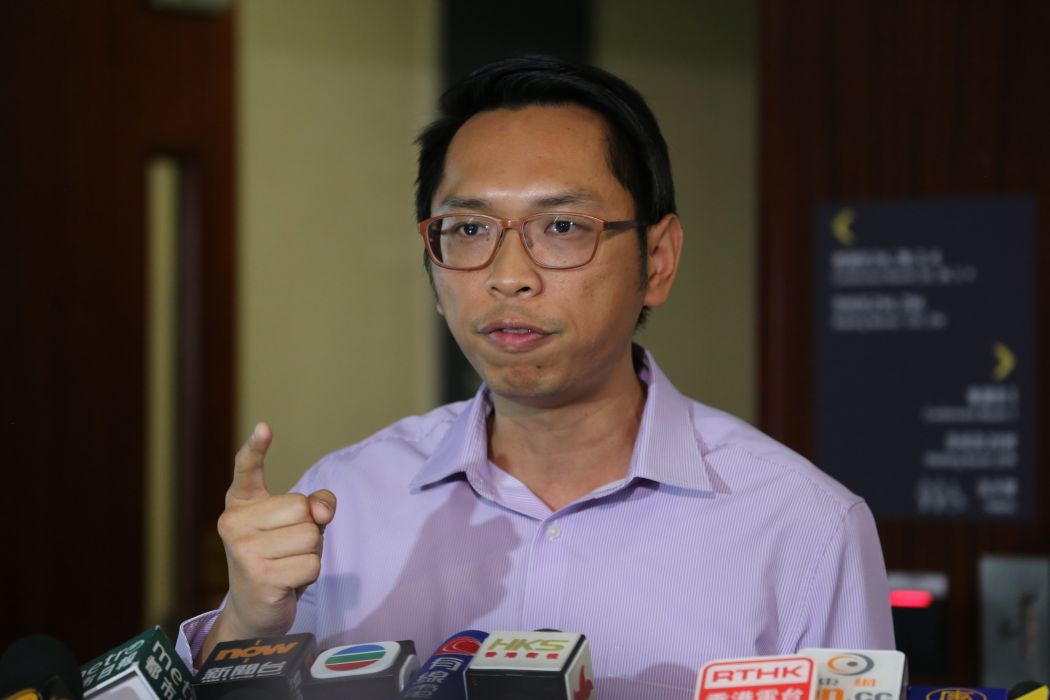Hong Kong’s legislature has approved changes to the city’s Immigration Ordinance that will give sweeping powers to the immigration chief to ban residents and others from entering the territory. The bill passed with 39 votes in favour and two votes against, as critics fear the law could also be used to prevent people leaving the city.

Dismissing concerns from lawyers and activists, the government previously said the bill’s main objective is to “improve” the city’s asylum application procedures and clear its backlog on asylum claims, formally called non-refoulement claims. The changes will include reducing the time allowed for the application process, and introducing measures to enforce immigration laws for the removal and detention of immigrants.
Clearing asylum claims backlog
Effective from August 1, the Immigration (Amendment) Bill 2020 will empower the government to bar a passenger or a member of a crew from boarding a transportation carrier to enter or leave the territory.
The changes will also allow immigration detention officers to carry guns and steel batons while on duty.

Critics of the bill — including pro-democracy activists and the Hong Kong Bar Association – fear that the changes will give the Immigration Department “apparently unfettered power” to stop residents from entering or exiting the city.
The amendments will also require airlines to submit details of its aircrew and passengers ahead of arrival, through an Advanced Passenger Information system: “These provisions would result in arbitrary and unjustified immigration detention in circumstances that are incompatible with fundamental human rights and long-standing common law principles,” the Bar Association said in a paper submitted to the legislature in February.
It also urged the government to amend the bill so that the provision will only apply to those entering Hong Kong.
‘Lock Up Hong Kong Ordinance’
While some critics called the bill “Lock Up Hong Kong Ordinance,” the government said the bill is targeted at the arrival of torture claimants, as it “will only apply to flights heading to Hong Kong.” However, the wording of the bill does not differentiate between entries and exits in its application.
The Security Bureau deemed the Bar Association’s position an “unnecessary misunderstanding” in February.

The government also repeatedly said the requirement for passenger and crew details was to fulfil Hong Kong’s obligations under the Convention on International Civil Aviation.
In April, the bureau issued a strongly-worded statement to “strongly condemn” an opinion piece penned by a pro-democracy group that criticised the bill, claiming that it “attempts to mislead people” and “cause panic.”
‘Fake refugees’
Pro-establishment lawmakers — who now dominate the Hong Kong legislature after democrats quit in protest in November — expressed support for the bill during Wednesday’s debate. They said it will solve the alleged problem of “fake refugees,” as they condemned critics as having ulterior motives.

Hong Kong Federation of Trade Unions lawmaker Michael Luk said during the debate on that activists supported “fake” refugee asylum claims in order to profit from the legal aid scheme.
“Either they spread rumours to spread fear, or those from the ‘laam chau’ camp have a guilty conscience, as they plan on absconding themselves,” Luk said, referring to democrats who advocated for “mutual destruction” for Hongkongers unless the government conceded to the 2019 protest demands.
Civic Passion lawmaker Cheng Chung-Tai, however, questioned how the government – or even airlines – would know before a person flew to Hong Kong that they intended to apply for asylum protection.
Pro-democracy activists responded to the bill on Wednesday, saying that it was passed by a “rubber-stamp” legislature with little public consultation.
‘Absolute power’
Figo Chan of the Civil Human Rights Front said that, while the government and pro-establishment lawmakers claimed the bill was to stop “fake” asylum claims and clear a backlog by stemming number of applicants “at source,” it included no provision to assist those with legitimate fears of persecution in other countries.
Chow Hang-tung of Hong Kong Alliance in Support of Patriotic Democratic Movements of China, said that anyone travelling to Hong Kong should worry about the changes: “For anyone entering or leaving Hong Kong, they will be under great uncertainty… because this power is unlimited, not restricted by any purpose,” she said.
“This ordinance didn’t say that it is limited to political activists – with this absolute power, you won’t know who they will use this on,” Chow said. “So it’s not just a political activist who should worry, [but] anyone who may get on the wrong side of the government. You could be targeted wrongly… and, suddenly, you may find that your plans are disrupted because you discovered that you can’t leave Hong Kong,” she said.
Support HKFP | Policies & Ethics | Error/typo? | Contact Us | Newsletter | Transparency & Annual Report | Apps
Help safeguard press freedom & keep HKFP free for all readers by supporting our team

LATEST FROM HKFP
HKFP has an impartial stance, transparent funding, and balanced coverage guided by an Ethics Code and Corrections Policy.
Support press freedom & help us surpass 1,000 monthly Patrons: 100% independent, governed by an ethics code & not-for-profit.










